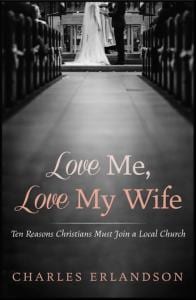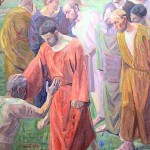 Clear Diagnosis of What Liberal Christianity Is
Clear Diagnosis of What Liberal Christianity Is
Even though J. Gresham Machen’s “Christianity and Liberalism” was first written in 1923, it’s still a relevant and important analysis of liberal Christianity. Machen writes with great clarity and as one who engaged with liberal Christianity (or “Liberalism”) in his own denomination (Presbyterian). In fact, he was one of the leading defenders of orthodox Christianity in the early 20th century. “Christianity and Liberalism” remains an excellent introduction to the crucial differences between orthodox Christianity and liberal Christianity. It’s a book I still recommend to readers.
In his Introduction, Machen diagnoses liberal Christianity as not an alternative form of Christianity but as a different religion than Christianity. By showing what Christianity is not, he desires to show in “Christianity and Liberalism” what Christianity is. In the remainder of the book Machen supports his thesis about the nature of liberal Christianity in 6 chapters.
In Chapter 2 on “Doctrine,” Machen addresses the fact that Christianity is a doctrine. This is in contrast to Liberalism which asserts that Christianity is a life but not a doctrine with certain required beliefs. Not so, says Machen, and he capably demonstrates his point from the Bible and the early Church. In Chapter 3 Machen deals with “God and Man.” Liberalism believes in a God without a moral quality and a God who is not truly transcendent. This in contrast to the orthodox and biblical view where there is a sharp distinction between God and man. The heart of Liberalism, Machen argues, is that there is no such thing as sin.
Machen continues to clearly differentiate Liberalism from Christianity in his remaining chapters. These deal with the Bible, Christ, Salvation, and the Church. In every case, Liberalism is found to have a different basis than Christianity. As you might expect, the Bible is not truly the Word of God in Liberalism, Christ is not truly God, and salvation is a light matter because sin does not really exist and man is basically good. Machen also offers some instructive observations about how Liberalism has, in the guise of orthodox Christianity, taken over seminaries and universities, a process that continues in the 21st century.
If you’ve ever wondered why Christianity can seem so vastly different, not only between denominations but even within denominations or how someone can claim to be a Christian without holding any of the historic and Bible bases for Christianity, “Christianity and Liberalism” will help you understand these issues. Regardless of your religious affiliation, “Christianity and Liberalism” makes clear to its readers the critical differences between two very different approaches to religion: Christianity and Liberalism.











